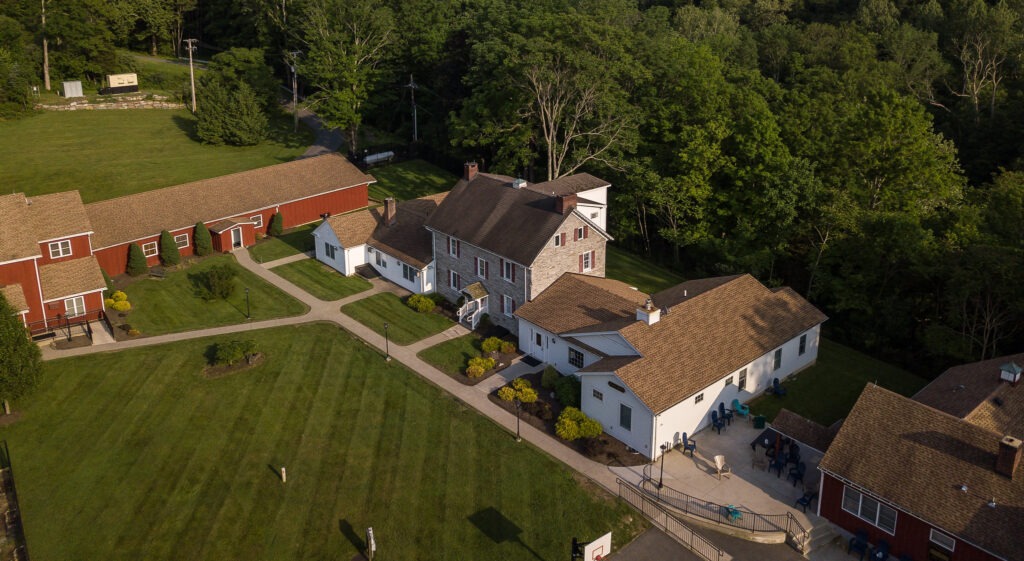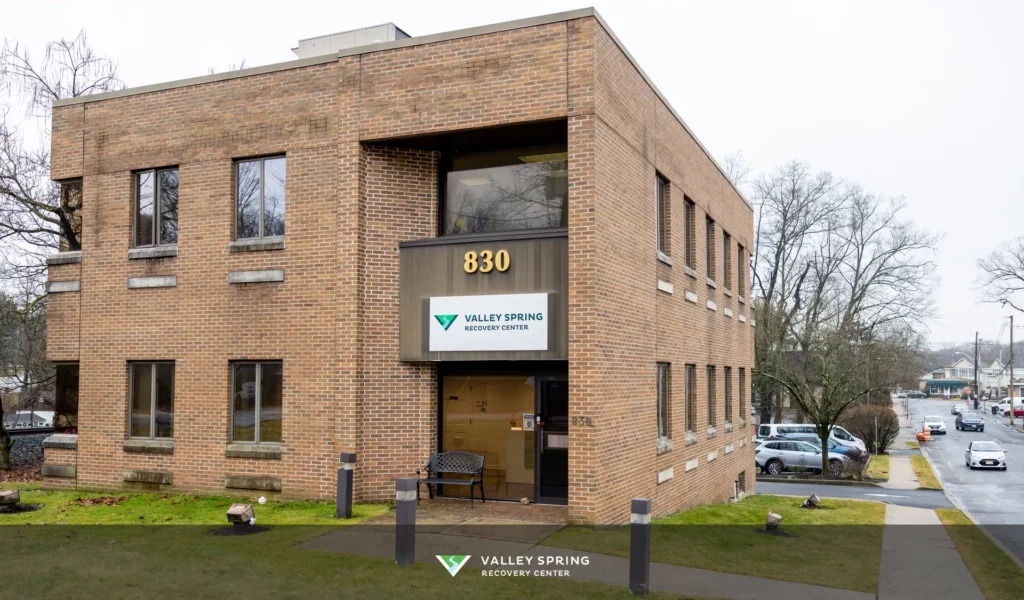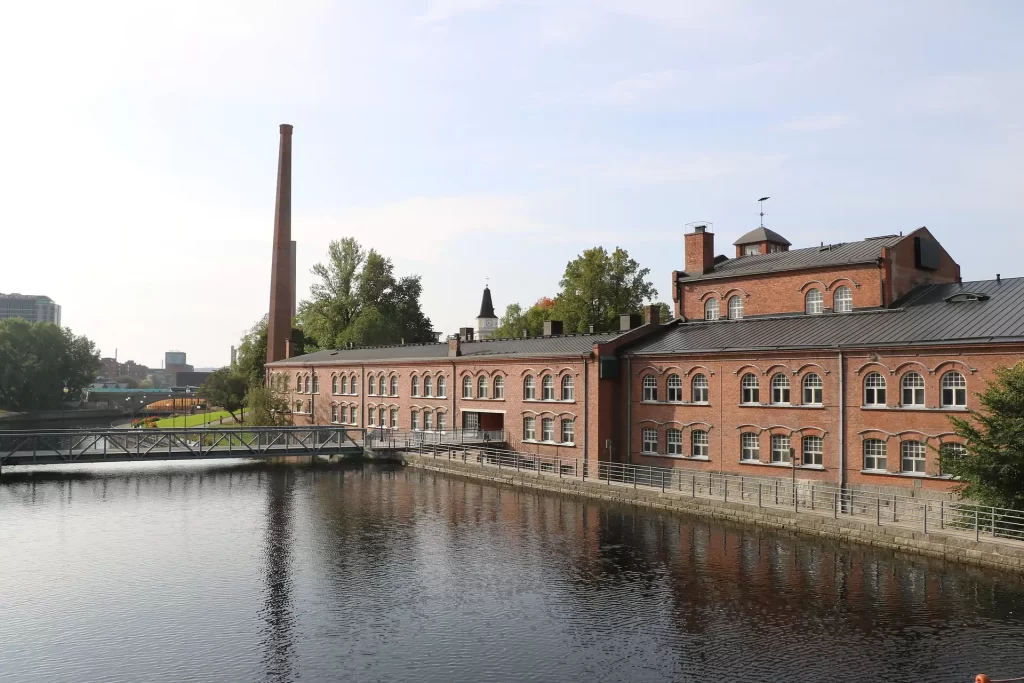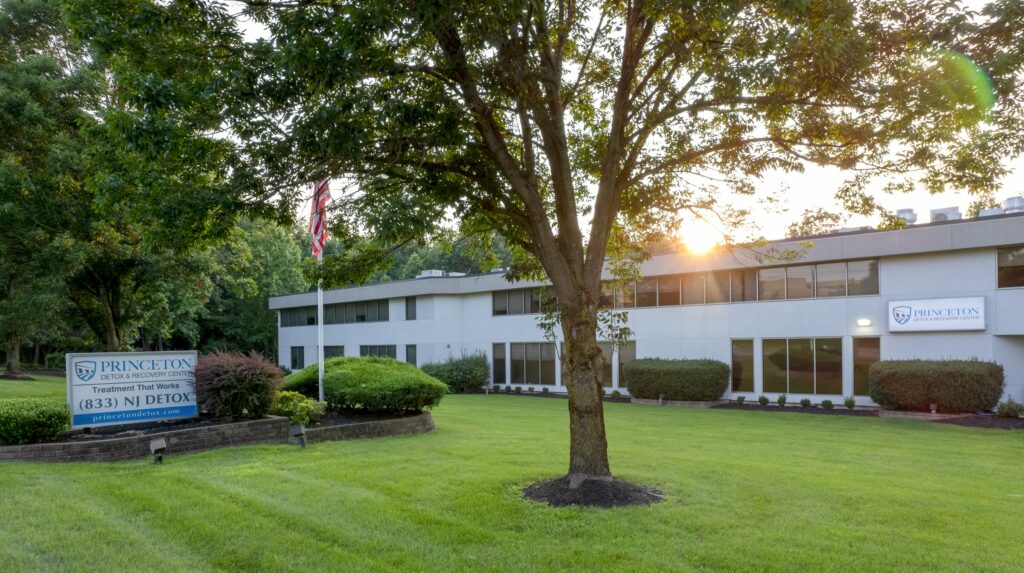Alina Lodge Executive Rehab Program
Alina Lodge’s Executive Rehab Program in Blairstown, New Jersey, is a long-established, Joint Commission–accredited residential facility providing confidential, luxury addiction treatment tailored for professionals balancing demanding careers. Set in a peaceful rural campus, the center blends evidence-based therapy, individualized care, and family involvement to support lasting recovery. For clients seeking more than traditional rehab, Alina…
Valley Spring Recovery Center
Valley Spring Recovery Center is a boutique, outpatient treatment center located in Norwood, New Jersey, delivering compassionate, evidence-based care for both addiction and co-occurring mental health disorders. Conveniently located just minutes from NYC, the center offers flexible and discreet outpatient programs tailored for working professionals, with immediate access via same-day intake and concierge transport. A…
Avatar Residential Detox Center
Avatar Residential Detox Center is a luxury, Joint Commission–accredited inpatient detox and residential treatment facility nestled in the Ramapo Mountains near NYC in New Jersey. Clients receive holistic, evidence-informed care—including detox, dual-diagnosis treatment, specialty therapies, and personalized support—within a tranquil, private setting designed for healing. Treatment Offerings at Avatar Avatar offers a full continuum of…
Princeton Detox & Recovery Center
Princeton Detox & Recovery Center in New Jersey delivers a medically monitored detox experience in a serene, homestyle retreat setting, grounded in evidence-based treatments and compassionate care. Their individualized programming, from assessment to aftercare transition, is backed by Joint Commission accreditation and a dedicated clinical team. Princeton Detox is Designed With Comfort for Clients in…
Serenity at Summit New Jersey
Serenity at Summit in New Jersey delivers a full continuum of addiction treatment care, from medically supervised detox to residential, PHP, and outpatient care, within a serene, modern setting. Accredited by the Joint Commission, the center blends evidence-based therapy with holistic strategies and flexible programming tracks to meet diverse recovery needs. Positioned to serve professionals…
Why Trust ExecutiveRehabs
Since 2003, our expert team has built comprehensive resources on executive rehab centers that you can trust to find the right treatment for you.
Transparency and accuracy matter, and we believe you deserve nothing short of the best possible experience when reaching out for support.
FAQs on Executive Rehab
The New Jersey Executive Treatment Landscape: Challenges and Opportunities for Professionals
New Jersey's position as home to 14 of the world's top 20 pharmaceutical companies, combined with its proximity to Wall Street financial centers, creates a unique executive population with specific addiction treatment needs.
According to SAMHSA data from 2022, New Jersey reported 85,266 substance abuse treatment admissions, with approximately 32% of clients employed full or part-time, indicating a significant working professional population seeking treatment.
The state's dense concentration of Fortune 500 companies and pharmaceutical giants like Bristol Myers Squibb, Novo Nordisk, and Novartis has created an executive population facing unprecedented workplace stressors. Recent industry upheavals, including over 2,200 pharmaceutical layoffs announced for 2025-2026, have intensified the pressure on remaining executives.
These corporate restructuring efforts, combined with federal tariff pressures and pricing regulations, have created what industry experts describe as a "perfect storm" of executive stress factors.
Confidentiality Protections: New Jersey's Advantage
New Jersey stands out nationally for its exceptionally robust confidentiality protections for substance abuse treatment.
Under New Jersey Administrative Code § 8:111-27.1, the state requires compliance with both federal HIPAA regulations and the more restrictive Federal Confidentiality of Alcohol and Drug Abuse Patient Records regulation (42 CFR Part 2), with references linked to in citations and source list.
Notably, New Jersey's laws are among the most stringent in the nation, with privacy protections that exceed federal requirements and limit information disclosure to only administrative and diagnostic data, patient status, admission reasons, and estimated treatment duration.
This legal framework provides executives with superior privacy protections compared to many other states, making New Jersey an attractive destination for high-profile professionals seeking discretionary treatment.
However, a 1991 court ruling exempted ERISA self-insured employers from these enhanced protections, meaning most large corporations' executive health plans may not benefit from these state-level confidentiality enhancements.
Industry-Specific Stressors and Treatment Needs
The pharmaceutical industry's unique pressures create distinct addiction patterns among New Jersey executives.
The sector's focus on life-saving medications, combined with intense regulatory scrutiny and pricing pressures, generates what behavioral health experts describe as "mission-critical stress."
Executives in this environment often develop dependency patterns involving prescription medications, alcohol, and increasingly, stimulants used to manage demanding work schedules.
Financial sector executives commuting to Manhattan from New Jersey face additional challenges.
Research indicates that investment banking and financial services professionals exhibit disproportionately high rates of substance abuse, with alcohol being used as both a social lubricant for client relationships and a coping mechanism for extreme work demands.
The "work hard, play hard" culture prevalent in these industries often normalizes heavy drinking and substance use, making recognition and intervention more challenging.
Limited In-State Executive Treatment Options in NJ
Despite New Jersey's robust healthcare infrastructure, the state offers relatively few facilities specifically designed for executive-level addiction treatment.
Current options include Alina Lodge in Blairstown, which provides executive-specific programming in a luxury setting, and newer facilities like Valley Spring Recovery Center in Norwood, positioned near Alpine's affluent community.
However, the total capacity of these specialized programs remains insufficient for the state's executive population.
Harmony Healing Center in Cherry Hill offers private luxury treatment with costs ranging from $20,000 to $80,000 monthly, while Avatar Residential Detox Center provides high-end services at approximately $15,000 weekly.
These facilities represent the state's premium options but may not offer the specialized executive amenities and business continuity services that C-suite professionals require.
Popular Out-of-State Treatment Destinations for Garden State Residents
Many New Jersey executives seek treatment outside the state to ensure complete separation from their professional networks and maintain absolute confidentiality.
Connecticut facilities like High Watch Recovery Center in Kent, established in 1939 as the world's first 12-step treatment center, attract executives seeking discretionary care in a serene, 300-acre setting. The facility's proximity to New Jersey, while providing complete geographic separation, makes it an attractive option.
New York facilities, particularly those serving the Wall Street corridor, have developed expertise in treating financial services professionals.
These centers understand the unique pressures of high-stakes trading environments and the substance use patterns common among financial executives.
Florida destinations, including The Recovery Village Palm Beach at Baptist Health, have become increasingly popular among New Jersey executives seeking complete geographic separation combined with luxury amenities and year-round pleasant weather.
The trend toward out-of-state treatment reflects several factors: desire for anonymity, concern about professional reputation, need for specialized executive programming, and preference for facilities with established track records treating high-net-worth individuals.
This geographic diversification of treatment also allows executives to avoid potential conflicts with local business associates or competitors who might be receiving treatment at the same facility.
Insurance and Cost Considerations
Executive-level addiction treatment presents unique financial challenges in New Jersey. While the state requires insurance coverage for substance abuse treatment, executive-level amenities and services often fall outside standard coverage parameters.
Private pay arrangements are common, with costs for luxury executive programs ranging from $30,000 to $100,000 for 30-day residential programs.
Many executives utilize health savings accounts, executive health benefits, or personal assets to fund treatment.
Some forward-thinking corporations have begun incorporating executive addiction treatment coverage into their benefits packages, recognizing the significant return on investment from successful executive rehabilitation.
However, the stigma surrounding executive substance abuse often prevents companies from publicizing these benefits.
Hospital System Partnerships and Referral Networks
New Jersey's major hospital systems have begun developing specialized pathways for executive-level patients.
RWJBarnabas Health, through its Institute for Prevention and Recovery and partnership with Rutgers University Behavioral Health Care, offers sophisticated assessment and referral services.
The system's Tackling Addiction Task Force, co-chaired by Senior Vice President Connie Greene, has developed protocols specifically for high-functioning professionals requiring discretionary care.
Atlantic Health System's partnerships with specialized rehabilitation providers demonstrate the growing recognition of executive treatment needs.
However, most major hospital systems focus on referring executive patients to specialized facilities rather than providing direct executive-level addiction treatment services.
Emerging Trends and Future Considerations
The landscape of executive addiction treatment in New Jersey continues evolving.
Telemedicine options have expanded significantly, allowing executives to maintain business responsibilities while participating in intensive outpatient programming.
The COVID-19 pandemic accelerated acceptance of virtual treatment modalities, making hybrid treatment models more feasible for busy executives.
Additionally, the growing recognition of mental health parity in executive circles has reduced some stigma associated with seeking treatment.
Corporate wellness programs increasingly include mental health and substance abuse components, though executive-specific resources remain limited.
Source List or Citations
SAMHSA 2020 N-SSATS New Jersey State Profile – New Jersey substance abuse treatment facility statistics and client data
New Jersey Administrative Code § 8:111-27.1 - Confidentiality regulations
SAMHSA 2022 New Jersey Substance Use Treatment Data – Employment status and treatment admission statistics
New Jersey Mental Health Statistics 2024 – State behavioral health outcomes and provider capacity
Federal Confidentiality Regulations for Substance Abuse Treatment – Federal privacy law framework
New Jersey Confidentiality Guide – State-specific confidentiality requirements
New Jersey Pharmaceutical Industry Layoffs – Industry stressors affecting executives
RWJBarnabas Health Institute for Prevention and Recovery – Hospital system addiction services
Financial Industry Addiction Statistics – Wall Street professional substance abuse patterns
Workplace Addiction Statistics – Executive and professional addiction rates
Privacy Issues in Mental Health and Substance Abuse Treatment – State privacy law analysis including New Jersey
Choose New Jersey Pharmaceutical Industry Data – State pharmaceutical company concentration statistics





